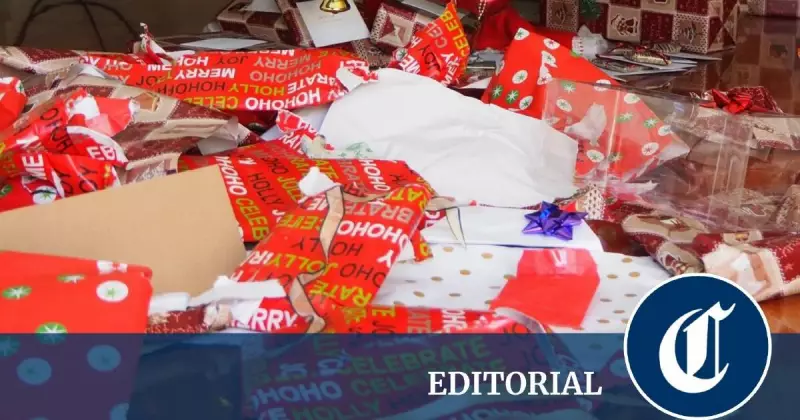
As National Recycling Week concludes across Australia, households now face their biggest annual sustainability challenge: the Christmas season. The campaign ended on Sunday, November 16, 2025, but its crucial message about reducing, reusing, and recycling must now withstand the festive period's excesses.
Rethinking Christmas Gift-Giving
The coming weeks typically plunge Australians into a whirlwind of consumerism driven by social pressure and obligation. This often results in mountains of food waste and countless disposable presents that barely survive until Boxing Day.
Many cheap, thoughtless items exchanged during Kris Kringles or purchased out of duty will likely end up in landfill before the year ends. This disposable culture directly contradicts the environmental awareness promoted throughout November.
This year presents a unique opportunity to bridge National Recycling Week directly into Christmas celebrations by embracing circular economy principles. Rather than purchasing new items destined for the bin, Australians can close the recycling loop through experiences, mindful consumption, and community sharing.
Meaningful Alternatives to Physical Gifts
The most cherished gifts often create lasting memories rather than collecting dust on shelves. Consider giving concert tickets, family museum memberships, cooking masterclasses, or vouchers for local artisan workshops. These experience-based presents generate zero waste and won't contribute to household clutter.
When physical gifts feel necessary, embrace the concept of second-life giving. Pass on a cherished personal item or make a donation in someone's name to organizations like the Fred Hollows Foundation or Doctors Without Borders. Supporting humanitarian aid or conservation efforts represents a powerful, waste-free gesture that extends goodwill beyond immediate circles.
Sustainable Festive Practices
Christmas feasting frequently becomes synonymous with food waste, with Australians discarding more edible items during this period than any other time of year.
Mindful meal planning becomes essential for a circular Christmas. Carefully calculate quantities, get creative with leftovers, and utilize reusable containers for storage. Send guests home with shareable portions to ensure delicious food doesn't go to waste.
Check your local council's green waste or composting services capabilities, or establish a home composting system to return nutrients to your garden.
The wrapping paper trail presents another visible waste stream. Instead of contributing to millions of metres of non-recyclable foil and glitter wrap, switch to reusable fabric alternatives. Japanese Furoshiki techniques using scarves, tea towels, or scrap fabric can be passed down through generations.
Even decorations often fall into single-use categories. Community sharing through Buy Nothing groups can source gently used garlands, lights, and ornaments. Better yet, create compostable decorations from natural materials like pinecones and dried citrus slices.
This Christmas represents an opportunity to break the consumption cycle. Let National Recycling Week's conclusion mark the beginning of a sustainable, joyful holiday season that truly closes the loop on waste.





